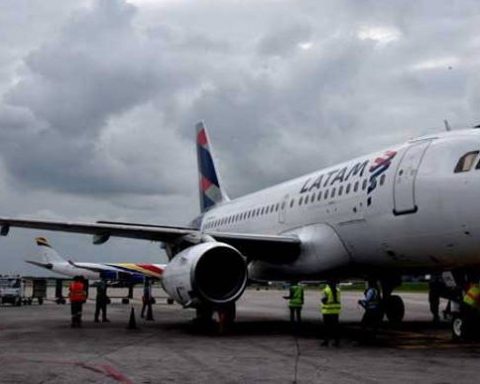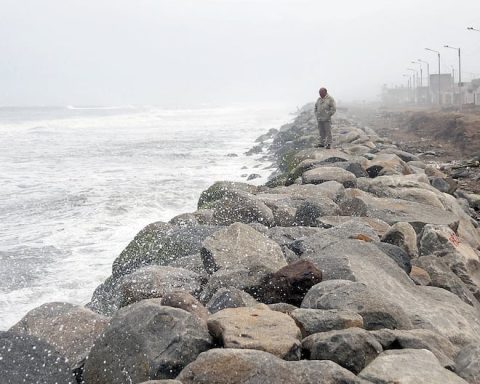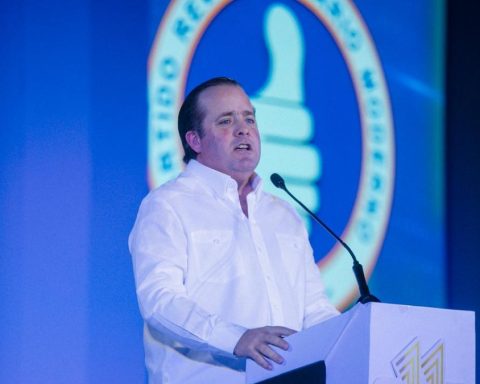After four months with frozen fuel ratesAt the beginning of the year, the thrust of international oil prices was stronger and Ancap’s financial support was not enough to postpone an increase in diesel and naphtha to the public.
On Thursday of last week, after knowing the report on Import Parity Prices prepared by Ursea, the government began to prepare the ground. In public statements, the Minister of Industry, Omar Paganini, spoke of concern about the increase in oil and freight costs. He also said that the margin available should be “reviewed carefully” to determine “how much” of these increases could be “mitigated”.
Three days later, the Executive Power resolved an adjustment of $3 in the price of fuel that governs from this Tuesday, February 1st in all the stations of the country. Thus, the price of Super 95 gasoline at the pump rose 4.26% and went from $70.41 to $73.41 per liter, while common diesel it increased 6% and went from $49.94 to $52.94.
The price of supergas (LPG) also increased, going from $56.16 to $59.16 per kilo (5.35%). In this way, now the 13 kg bottle has a cost to the public of $769.08 (without shipping). The supergas rate was frozen since June of last year. Ancap had estimated that this year the supergas subsidy would increase from $2.6 to $2.9 per liter, which is equivalent to about US$ 125 million per year, which the company then transfers on the rates of gasoline and diesel.
The last rate adjustment had been made in August when there was an increase of $5 per liter. The following month there was a minimal drop, and since October the government has opted to keep retail prices unchanged, even when the PPI indicated an increase on several occasions.
This policy had as a great ally the extraordinary profits of Ancap from sales of diesel oil to UTE for the export of energy to Brazil, which was a record. And also some stability in crude oil prices even within the volatility that characterizes that market.
The panorama changed at the beginning of the year. On the one hand, it stopped selling energy to Brazil, so the Ancap box stopped receiving extra income. That was something that could be expected and, a priori, it was not a problem. But what was not in the plans was the spike in the price of Brent, which rose 15% in the month and today is trading around US$90 per barrel.
The upward trend in crude oil values caused the PPI to rise 12% in January in the case of diesel, and 5% in gasoline. It also widened the gap between prices (explant) and the theoretical reference of the international market. Since August, the accumulated gap stood at 18.7% for diesel, and 11.5% for gasoline.
Minister Paganini stated this Monday at a press conference that after analyzing the situation, the government decided “a minimal adjustment”, even when the numbers indicated that it should be “approximately” double.
“The remainder of Ancap’s extraordinary profits from last year will continue to be used to mitigate what has been this increase in costs,” said the minister. And he recognized that it is not possible to “support” prices “completely” because “it generates very strong commitments in Ancap’s accounts.”
Ancap authorities had previously estimated that selling fuels (basically diesel and gasoline) below the PPI has a monthly impact for Ancap of between US$10 and US$15 million.
“What the government wants as much as possible is not to pass on to the economy and the citizens the increase in international costs that is taking place and that is very notorious,” added Paganini.
The fuel policy developed in recent months has been criticized by various analystswhich indicate that the discretionary management of fuel rates is still present, despite the creation of a rule that aims to reduce it with the application of the PPI published by Ursea.
“A tariff delay continues to accumulate” in Ancap, which, sooner or later, will lead to a considerable increase in prices,” the economist Javier de Haedo wrote on his Twitter account last week.
Meanwhile, the CPA Ferrere economist, Nicholas Cichevsky, He stated on his Twitter account that “postponing a fuel increase, whether it is financed with extraordinary income or via General Revenue, in any case benefits the population that consumes fuel. Except that said ‘subsidy’ is financed with a higher future increase”.
















